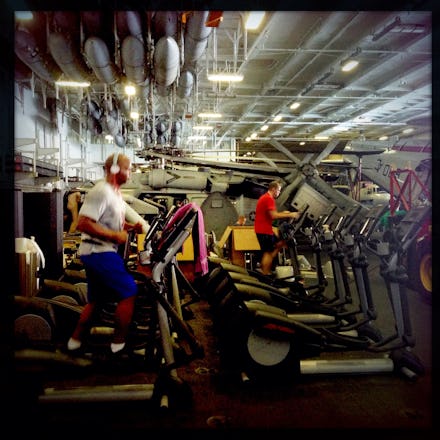Scientists Have Discovered Why You Don't Want to Exercise — And It's Not Your Fault

The news: It's not your fault that you don't feel like exercising — it's likely your brain's.
Scientists at Seattle Children's Research Institute claim to have discovered the region of the brain responsible for motivating one to exercise and do other rewarding tasks. They hope targeting this area will lead to new ways to treat chronic depression.
Published in the Journal of Neuroscience, the research indicates that a structure called the dorsal medial habenula, a tiny region in the brain, controls the desire to exercise in mice.
Image Credit: AP
Because the structure is similar in humans, medical researchers believe they could potentially use the findings to develop better treatments to encourage rewarding behavior and break depression.
The science: Mice that had been genetically altered to block signals emanating from the dorsal medial habenula lost the desire to move more than necessary.
Image Credit: AP
Another experiment in the same study found that mice, when given the choice of activating a device that stimulated that region of the brain, did so often, which demonstrates the structure is linked to the sensation of reward. Previous experiments have linked the dorsal medial habenula to depression and demonstrated that it activates negative stimuli.
Principal investigator Dr. Eric Turner and lead author Dr. Yun-Wei (Toni Hsu) say that the research sheds light on the physiological roots of a decreased desire to exercise.
"Changes in physical activity and the inability to enjoy rewarding or pleasurable experiences are two hallmarks of major depression," Turner said in a press release. "But the brain pathways responsible for exercise motivation have not been well understood. Now, we can seek ways to manipulate activity within this specific area of the brain without impacting the rest of the brain's activity."
It's never too early. Helping people build healthy exercise habits from a young age is important as well. A recent study found that aerobic fitness is associated with higher amounts of healthy white matter in the brains of children, suggesting poor fitness may lead to underperformance in school. So, with or without that miracle exercise drug, we must ensure that children are getting enough exercise.